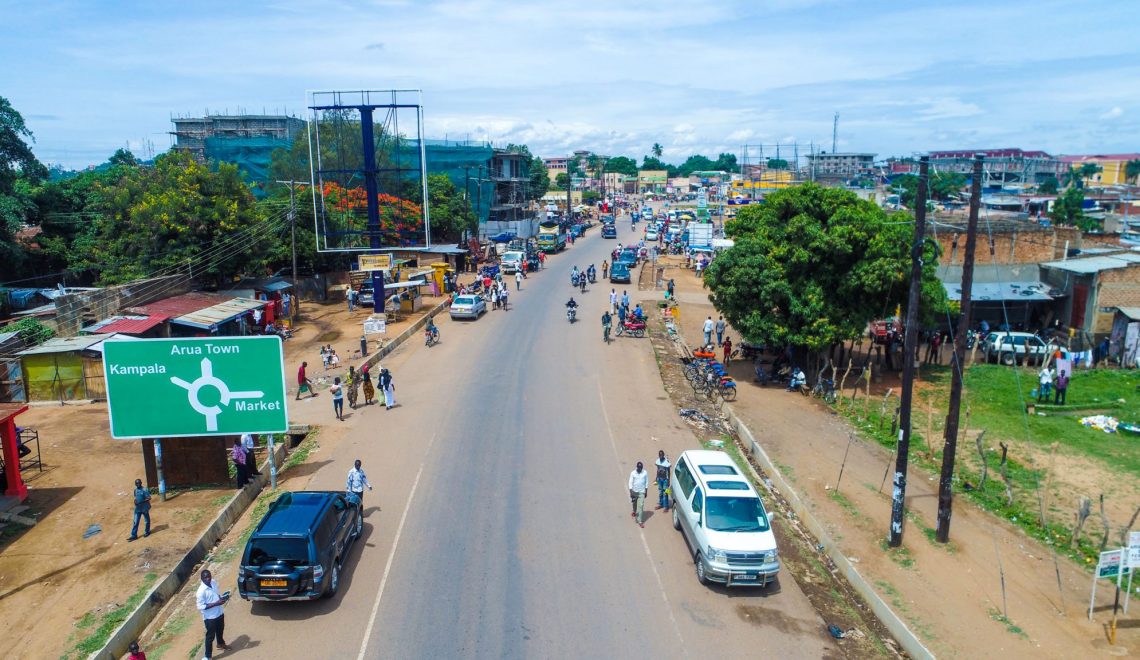 Ever read Alec Russell’s novel with the above title? It is a must read for anybody who wants to to get a glimpse of how Africa operates. Since independence Africans have been terribly betrayed by the Europeans, the superpowers, and tragically, by their own leaders. Could a new generation of leaders turn the tide? Would they learn from their predecessors’ mistakes and fuel a new African renaissance? Or is Africa doomed to further decades of turmoil?In his witty and informative narrative, Alec Russell tells the stories of his encounters with Africa’s Big Men. Each one represents a theme which has shaped the continent: Mobutu Sese Seko of Zaire, the “King of Kleptocracy” whose staggering corruption crippled Zaire; Jonas Savimbi, the life-long guerrilla and symbol of the Cold War’s destructive legacy on the continent; the quixotic Hastings Banda, the ultimate product of colonialism; and, of course, Nelson Mandela, symbol of reconciliation and hope for an entire continent.By any measure, this was a terrible century for Africa. However Russell detected signs of hope in the fledgling human rights troupes he encountered deep in the steamy heart of the Congolese jungle and in the group of journalists that kept Moi’s tottering regime in Kenya on its toes.
Ever read Alec Russell’s novel with the above title? It is a must read for anybody who wants to to get a glimpse of how Africa operates. Since independence Africans have been terribly betrayed by the Europeans, the superpowers, and tragically, by their own leaders. Could a new generation of leaders turn the tide? Would they learn from their predecessors’ mistakes and fuel a new African renaissance? Or is Africa doomed to further decades of turmoil?In his witty and informative narrative, Alec Russell tells the stories of his encounters with Africa’s Big Men. Each one represents a theme which has shaped the continent: Mobutu Sese Seko of Zaire, the “King of Kleptocracy” whose staggering corruption crippled Zaire; Jonas Savimbi, the life-long guerrilla and symbol of the Cold War’s destructive legacy on the continent; the quixotic Hastings Banda, the ultimate product of colonialism; and, of course, Nelson Mandela, symbol of reconciliation and hope for an entire continent.By any measure, this was a terrible century for Africa. However Russell detected signs of hope in the fledgling human rights troupes he encountered deep in the steamy heart of the Congolese jungle and in the group of journalists that kept Moi’s tottering regime in Kenya on its toes.
However, writing as an outsider, Alec Russell, did not seem to understand the full import of the relationships he narrated. Neither did I until some mind shaking events made me stumble upon the real import of African human relations.Rommie Litrell, while presenting a paper about South African managers at the Academy of Management 2011 meeting in San Antonio, Texas, said that he had found no evidence of the phenomenon called Ubuntu amongst Black South African Managers. Indeed he observed, blacks were more likely to throw the rulebook at their fellow Africans than white managers in similar circumstances.
His finding/observation was not new to me. I have observed in several interactions with my own people that those of us favoured by a higher station in life, tend to be very unkind and in some instances extremely cruelly disposed to those of a lower pecking order. Just observe the relationships between golfers and caddies at Uganda Gold Club, and you will understand what I mean – well if you can get onto the course to play golf. Or walk into any household and experience the treatment of the house help if you can’t play golf. Perhaps a self-reflection of that in us which we abhor. But Rommie is a white man and we would be inclined to dismiss him.
Not so if you are true to yourself and come from Africa. On a daily basis, we see Africans visit inequity on their kith and kin. Mugabe has been murdering his people for a long time and blaming it on the white colonialists. And there are those amongst us he will justify his folly. Somalis are using one of the most obnoxious of reasons to delimb, behead and hasten the journey of their countrymen to Hades – religion. We are always shocked into silence by the brutality our governments visit upon their own people, especially the opposition. Be shocked no more because that treatment could be awaiting you. Just don’t get on the wrong side of might, because might is right in Africa and we seem to accept that order with fatalism.
My point is that the best explanation for why Africans treat each other the way they do, is because of their very primordial state of development. Before you knife me, just hear me out. First in primitive societies, the instinct to survive makes is very foremost. Like in the Darwinian example, it is survival for the fittest. So our fellow travellers are fodder, you cannibalize them, abuse them, and take an unequal share of the national resources –just to prove that you are a better species of homosapiens. Primitive societies are also inclined to be feudal, so in keeping with that view of things, everybody and everything has their place and they have to stay in it. Woe betide you if you step out of your place.
But a better understanding of the problem has been brought to my attention in realizing that in African (read Bantu) societies, there is a word of leadership. The leader is omniscient, omnipotent and the giver of all things good. Now he who gives can take, even that which he did not give, including your life. Alternatively we must ask ourselves, is there a word for ‘Manager; in our languages? Managers plan, organize, lead and control by example. But they are rewarded for improving the lot of their company or country. As part of my erudition, albeit a bit to late, I have found that there is no such word for manager. Either you get a cruel or benevolent leader. There is nothing in between.
In our context, human relationships defined are defined on the basis of have and have not, on the basis of power versus meekness. In keeping with this analogy, it is in all probability most likely that a leader of the opposition would do to the leader of the state exactly what the latter is capable of doing unto him. And do not exclude you or me. Our relations are defined on the basis of brute force, on the basis of our upbringing and conditioning. Anybody who would threaten that order would commit a taboo. It is just not the done thing to dissent. And there are a myriad proverbs that speak to this – ‘the nail that sticks out, gets hammered’, ‘you do not ‘see’ into the chief’s mouth’ ect.
And that my friends, is what I have taken away from San Antonio. The grim realization that our societies are still harnessed to the yoke of extreme inequality. Not that developed (read Western) societies are more equal. They too have undergone that phase, but through a technological revolution, have managed to create more egalitarian societies. So this is our challenge. To create a revolution that allows for plenty, and makes each of us go to bed, knowing there will be enough for all of us tomorrow. Stand up tomorrow’s managers!



